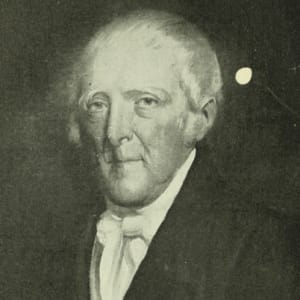
Pete Seeger
Pete Seeger was an iconic singer-songwriter best known for his contributions to the American folk music revival and his political activism.
Synopsis
Born on May 3, 1919, Pete Seeger was an iconic singer-songwriter best known for his contributions to the American folk music revival and his political activism. He wrote hits like "Where Have All the Flowers Gone?" and "Turn, Turn, Turn," which have since been recorded by several other artists. Seeger was also an engaged activist, supporting such causes as international disarmament, civil rights and environmental awareness. For his established career as a musician and activist, Seeger received three musical Grammy Awards and a Grammy Lifetime Achievement Award, among various other honors, during his lifetime. He died at age 94 on January 27, 2014, in New York City.
Early Life
American folk icon Peter Seeger was born in New York City on May 3, 1919, into a family of musicians. His father, Charles Seeger, taught music for some time at the University of California, Berkeley; and his mother, Constance (de Clyver Edson) Seeger, taught violin at the Juilliard School. Seeger's brother, Mike, would eventually become a member of New Lost City Ramblers; his sister, Peggy, would become a performing folk musician, alongside Ewan McColl.
A precocious child, Seeger was well-read and began developing political and social ideas at an early age. After receiving an early education at Avon Old Farms, a Connecticut boarding school, Seeger enrolled at Harvard University on a scholarship in 1936. After only two years at Harvard, however, he failed an exam and lost his scholarship, so he dropped out. He spent the rest of the 1930s as a vagabond, hitchiking and riding on freight trains around the country.
During this time, Seeger also focused on writing music. By 1940, he had organized a folk quartet called the Almanac Singers, which frequently featured Seeger's friend and fellow folk musician, Woody Guthrie. The Almanac Singers released several albums in the early '40s. In 1942, however, the group's musical progress was stopped short: Seeger was drafted into the Army to aid the country in battle during World War II, and the group disbanded not long after.
In 1943, Seeger married Toshi Aline Ohta, whom he'd met at a dance in the late 1930s.
Musical Career
After the war ended, in 1945, Pete Seeger went back to his musical career, performing folk songs and helping found the magazine Sing Out! A few years later, in 1948, he formed the Weavers, which included Lee Hays, Ronnie Gilbert and Fred Hellerman. The group produced several albums of standard folk songs in the early 1950s—among them "On Top of Old Smoky," "Follow the Drinking Gourd" and "The Wreck of the John B"—and even appeared in a 1951 film musical, Disc Jockey. The band also wrote and recorded several original songs, including "If I Had a Hammer" (1949) and "Kisses Sweeter Than Wine" (1950).
The Weavers' success was halted, however, when speculation rose regarding Seeger's leftist political ideals, culminating with the band's designation as a Communist group by FBI informant Harvey Matusow (who later retracted his statement). The Weavers took a short break from 1952 to 1955—caused in large part by the negative press—and Seeger broke from the band in 1958. The group officially disbanded in 1962.
The negative press surrounding Seeger and his politics deepened in 1961, when he was convicted for contempt of Congress—a judgment that was based on earlier questioning by the House Committee on Un-American Activities regarding Seeger's political activities as well as his subsequent and repeated refusal to answer to those claims. Seeger's musical career seemed even less promising following the conviction, which would be overturned in an appeal in 1962.
Despite the controversy surrounding him, Seeger continued to perform and record as a solo artist during this time, producing such hit songs as "Where Have All the Flowers Gone" (1961) and "Turn, Turn, Turn" (1962), which was later released as a single by folk-rock group the Byrds on their album Turn! Turn! Turn! (1965).
Also during this period, Seeger participated in the civil rights and anti-war movements of the '60s, and his reputation gradually improved. In 1966, Seeger recorded an anti-war anthem, "Bring 'Em Home," including lyrics in opposition to the Vietnam War: "For defense you need common sense/ Bring them home, bring them home/ They don't have the right armaments/ Bring them home, bring them home." The song was later covered by Bruce Springsteen.
His political activism bolstered Seeger's reputation as a college-campus icon and revered American folk musician. Following the release of several albums in the '60s, including God Bless The Grass and Dangerous Songs!? (both in 1966), Seeger published a literary, historical piece about folk music, civil rights and performers from the 20th century called The Incompleat Folksinger (1972).
Throughout the rest of the '70s and into the '80s, the musician frequently performed with fellow folk singer-songwriter Arlo Guthrie, the son of folk legend Woody Guthrie. Also during this time, Seeger worked with other activists to remove pollution from the Hudson River and create the environmental organization Hudson River Sloop Clearwater, which, among many projects, hosts music festivals to help fund the river's maintenance.
Later Years and Legacy
Seeger is regarded as a 20th century icon today, for his political activism as well as his pivotal role in the 1960s American folk music revival. According to the Encyclopedia of Folk, Country, and Western Music, Seeger was a "father figure whose contributions as an artist and writer were highly valued by people of all ages in and out of the music field."
Seeger received several high honors in the 1990s. In 1993, he received a Grammy Lifetime Achievement Award. He was awarded a National Medal of Arts a year later, and inducted into the Rock and Roll Hall of Fame in 1996. Following the release of his 1996 album, Pete, Seeger won a Grammy Award for best traditional folk album. That same year, he published an autobiography entitled Where Have All the Flowers Gone.
Nearly a decade later, Seeger received his third Grammy Award—this time for best traditional album—for his 2008 release, At 89. Also in 2008, the folk icon performed at President Barack Obama's inaugural celebration. In 2010, at the age of 91, Seeger released the abum Tomorrow's Children, which he recorded with a group of students and dedicated to environmental awareness. The work garnered him his fourth Grammy Award, for best musical album for children.
In his later years, Seeger continued to work as an activist, supporting such causes as international disarmament, civil rights and environmental awareness. His wife, Toshi, passed away at the age of 91 on July 9, 2013—just days before the couple's 70th wedding anniversary—at their Beacon, New York, home. Seeger died months later, on January 27, 2014, at the age of 94, at New York Presbyterian Hospital in New York City. The legendary musician was survived by son Daniel, daughters Mika and Tinya, half-sister Peggy and six grandchildren.




